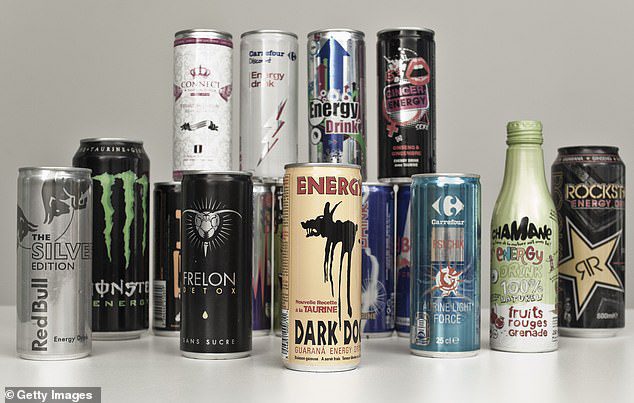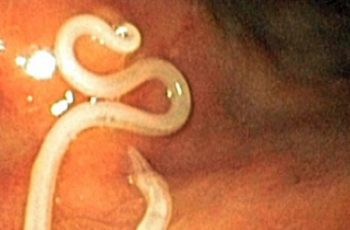Consuming just one energy drink could increase your risk of heart attack and stroke in 90 minutes, a new study finds.
Researchers from the University of Texas at Houston says the drinks narrow blood vessels, which restricts blood flow to vital organs.
Past studies have linked energy drinks – such as Red Bull, Monster and 5-Hour Energy – to stomach, nerve and heart problems.
But the team says its findings are among the first to shed light on the possible mechanism linking the high consumption of energy drinks to an increased risk metabolic syndrome.

A new study had found that consuming energy drinks can narrow blood vessels, restricting blood flow and increasing the risk of heart attacks and strokes (file image)
For the study, the team looked at 44 students from the McGovern Medical School at UTHealth.
The participants were all in their 20s, non-smoking and classified as ‘healthy’.
Researchers wanted to test the function of the endothelium, a layer of cells that line the surface of blood vessels.
According to Cedars-Sinai Medical Center in Los Angeles, endothelial dysfunction has been shown to be an indicator of heart attacks because the arteries are unable to dilate fully.
The team tested the participants’ endothelial function before each of the students drank a 24-ounce energy drink and then 90 minutes later.
During the second test, the researchers looked at the students’ artery flow-mediated dilation, an ultrasound that measures overall blood vessel health.
In just 90 minutes, the internal diameter of blood vessels, on average, had been cut by nearly half.
The team suggests that the negative effect on blood vessels could be related to the effects of ingredients in the energy drinks – including caffeine, taurine, sugar, and other herbals – on the endothelium.
Most energy drinks contain high levels of sugar. For example, one 12-ounce can of Red Bull contains 37 grams of sugar – the equivalent of more than nine teaspoons.
Research has shown that high blood sugar levels can make blood vessels contract more than normal, reducing the amount of blood that reaches vital organs.
These drinks also have 80 milligrams of caffeine per 250 milliliters – about the same as 2.5 cans of Coca-Cola.
Caffeine can also cause blood vessels to contract and releases adrenaline, a hormone that can temporarily increase blood pressure.
According to the National Center for Complementary and Integrative Health, almost one-third of American teens between 12 and 17 years old consume energy drinks regularly.
‘As energy drinks are becoming more and more popular, it is important to study the effects of these drinks on those who frequently drink them and better determine what, if any, is a safe consumption pattern,’ said Dr. John Higgins, a professor of medicine at the McGovern School.
In the last few years, scientists have been shedding light on several ill effects that energy drinks can cause.
An April 2017 study from the David Grant USAF Medical Center in California found that one 32-ounce energy drink can cause dangerous arrhythmia, a condition in which the heart beats with an irregular or abnormal rhythm.
And a February 2018 study from the University of Waterloo in Ontario, Canada, found that half of Canadian teenagers who consumed energy drinks reported experiencing health problems, including rapid heartbeat, nausea, and in rare cases, seizures.
The new findings will be presented at the American Heart Association’s Scientific Sessions 2018 in Chicago, which takes place from November 10 to November 12.
If you know someone who might like this, please click “Share”!




